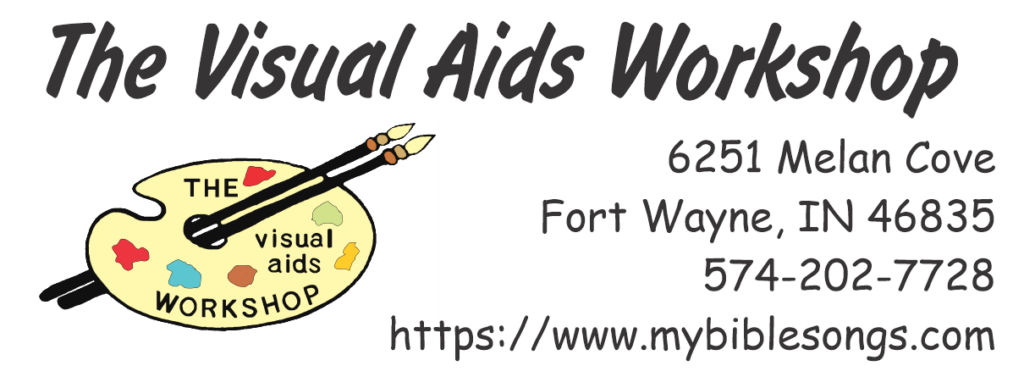Final Thoughts
Have you noticed how quickly young children, even pre-schoolers, pick up TV commercials? Why not take advantage of this peak learning period to start teaching songs that will help make their fertile minds and hearts receptive to further teaching as they grow in years? “Seeds” of Bible Doctrine, Bible Stories and Verses, Bible Truths and Christian Living can be planted early and built upon as the child matures. Visualization is an ideal method of teaching. Educators tell us we remember 10% of what we hear, 50% of what we see, and 80% of what we see AND hear. As a volunteer in Child Evangelism for thirty-eight years, and a teacher of Bible Doctrine to Junior aged children for forty years, I can verify the value of using visuals in teaching children (and adults also). It was also very important to me that the Bible Doctrine be presented correctly, no matter what age, so that it did not have to be “un-learned” when deeper truths are revealed.
Music is universal. People of every race and culture – men and women, boys and girls, – enjoy singing. They sing happy songs, sad songs, love songs, patriotic songs, hymns, gospel songs, choruses, anthems, cantatas, chants to name a few. Singing gives (1) expression to our inner feelings and moods. (2) Singing a happy song makes tedious chores easier to accomplish. (3) A bright, cheerful song gives us a “lift” when we are “down”. Finally, (4) singing conveys, in a pleasant way, messages we want to get across. All four of these apply to children, as well as adults.
As I continued to work with children, I saw how Bible Doctrine could be used in songs to help children remember more of what they had just learned. I gave considerable thought to what kind of songs they should be and developed a set of aims and rules to follow in the songs God gave me.
- Melodies must be rhythmic and singable. Accent of words and meter must go together.
- The Key has to be low, few flats and sharps. Most clubs sing without accompanist.
- No “Religious” cliches ( “Fountain filled with blood”) Big words are accepted if children are taught the meaning and learn to pronounce them correctly.
- The “mood” of the music and words must be compatible.
- Don’t treat Scripture lightly ( “Father Abraham” and “ If the devil doesn’t like it he can sit on a tack!)
Your time with boys and girls is SHORT! Your time needs to count if you expect to lead them to the Lord and instill in them the desire to know Him and His Word. Visual Aids Workshop Songs don’t use up “valuable teaching time”, they become a part of the teaching.
— Thelma Lindahl
